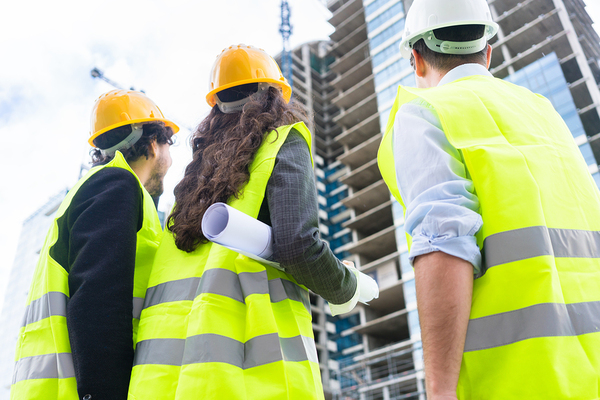Commercial properties are significant investments, and ensuring their safety and compliance with regulations is of utmost importance. Commercial inspection services, often conducted by building inspectors, play a crucial role in this process. In this article, we will explore the world of commercial inspection services, the responsibilities of building inspectors, and how they contribute to the safety and quality of commercial properties.
Understanding Commercial Inspection Services
Commercial inspection services encompass a broad range of assessments and evaluations carried out on commercial properties. These services are essential for prospective buyers, property owners, and stakeholders to make informed decisions regarding the condition and safety of the property.
Key Components of Commercial Inspection Services:
- Structural Inspection: One of the primary responsibilities of building inspectors in commercial inspection services is to assess the structural integrity of the building. This involves examining the foundation, walls, roof, and overall framework to ensure they meet safety and building code standards.
- Electrical Systems: Building inspectors thoroughly inspect the electrical systems within a commercial property. This includes checking for faulty wiring, ensuring the proper functioning of electrical components, and verifying compliance with electrical codes to prevent potential hazards.
- Plumbing and HVAC Systems: Plumbing inspections focus on water supply, drainage, and sewage systems. Additionally, the heating, ventilation, and air conditioning (HVAC) systems are evaluated to ensure they function efficiently and meet relevant codes.
- Fire Safety Measures: Commercial properties must adhere to stringent fire safety regulations. Building inspectors assess the presence and functionality of fire alarms, sprinkler systems, fire exits, and emergency lighting to guarantee the safety of occupants in case of a fire.
- Accessibility and Compliance: Commercial inspection services also include evaluating a property’s compliance with regulations regarding accessibility for individuals with disabilities. This includes assessing ramps, elevators, and other accommodations.
The Role of Building Inspectors
Building inspectors are trained professionals responsible for conducting thorough assessments of commercial properties. Their primary objective is to ensure that these properties meet safety standards, adhere to building codes, and comply with relevant regulations. The responsibilities of building inspectors in commercial inspection services can be summarized as follows:
- Pre-Purchase Inspection: Prospective buyers of commercial properties often hire building inspectors to assess a property’s condition before purchase. This inspection helps potential buyers make informed decisions and identify any potential issues that may need to be addressed.
- Pre-Lease Inspection: Property owners may conduct pre-lease inspections to document the condition of the property before a new tenant takes occupancy. This can help protect both parties by establishing a baseline for the property’s condition.
- Routine Maintenance Inspections: Regular inspections are essential to maintaining the safety and integrity of a commercial property. Building inspectors conduct routine maintenance inspections to identify and address issues before they escalate.
- Code Compliance: Building inspectors play a critical role in ensuring that commercial properties adhere to local building codes and regulations. These codes are in place to protect the safety and well-being of occupants.
- Safety Evaluation: Ensuring the safety of the property’s occupants is a top priority for building inspectors. This includes evaluating structural stability, fire safety measures, and other safety-related components.
How Building Inspectors Contribute to Commercial Property Safety
Building inspectors are instrumental in upholding the safety and quality of commercial properties. Their contributions to commercial property safety include:
- Risk Mitigation: Building inspectors identify potential risks and issues early in the inspection process, allowing property owners to address them promptly. This proactive approach minimizes the likelihood of accidents and costly repairs.
- Code Adherence: Ensuring that commercial properties comply with local building codes and regulations is fundamental to safety. These codes are designed to protect occupants and the community.
- Quality Control: Building inspectors assess the quality of construction materials and workmanship. High-quality materials and proper construction techniques are key to a building’s longevity and safety.
- Environmental Compliance: Building inspectors also verify that commercial properties adhere to environmental regulations. This includes proper disposal of hazardous materials and compliance with environmental standards.
- Community Safety: Commercial properties are often situated in densely populated areas. Ensuring their safety is essential not only for occupants but also for the well-being of the surrounding community.
Challenges Faced by Building Inspectors in Commercial Inspection Services
Building inspectors encounter several challenges in their mission to ensure the safety and compliance of commercial properties:
- Evolving Regulations: Building codes and regulations are subject to constant updates to accommodate new safety standards and technologies. Keeping up with these changes is an ongoing challenge for inspectors.
- Diverse Construction Practices: The construction industry is diverse, and inspectors must adapt to a wide range of building methods and materials.
- Workload and Time Constraints: Building inspectors often manage tight schedules, overseeing multiple projects simultaneously. This can lead to time constraints and potential oversights.
Conclusion
Commercial inspection services, facilitated by building inspectors, are essential for the safety, compliance, and overall well-being of commercial properties. These services encompass thorough assessments of structural integrity, electrical and plumbing systems, fire safety measures, accessibility, and compliance with regulations. Building inspectors play a pivotal role in ensuring that commercial properties meet safety standards, adhere to building codes, and provide a secure environment for occupants and the community. Their meticulous inspections and commitment to upholding safety standards make them indispensable in the world of commercial property evaluation and maintenance.
Congrats! You’ve Finished This Blog.





